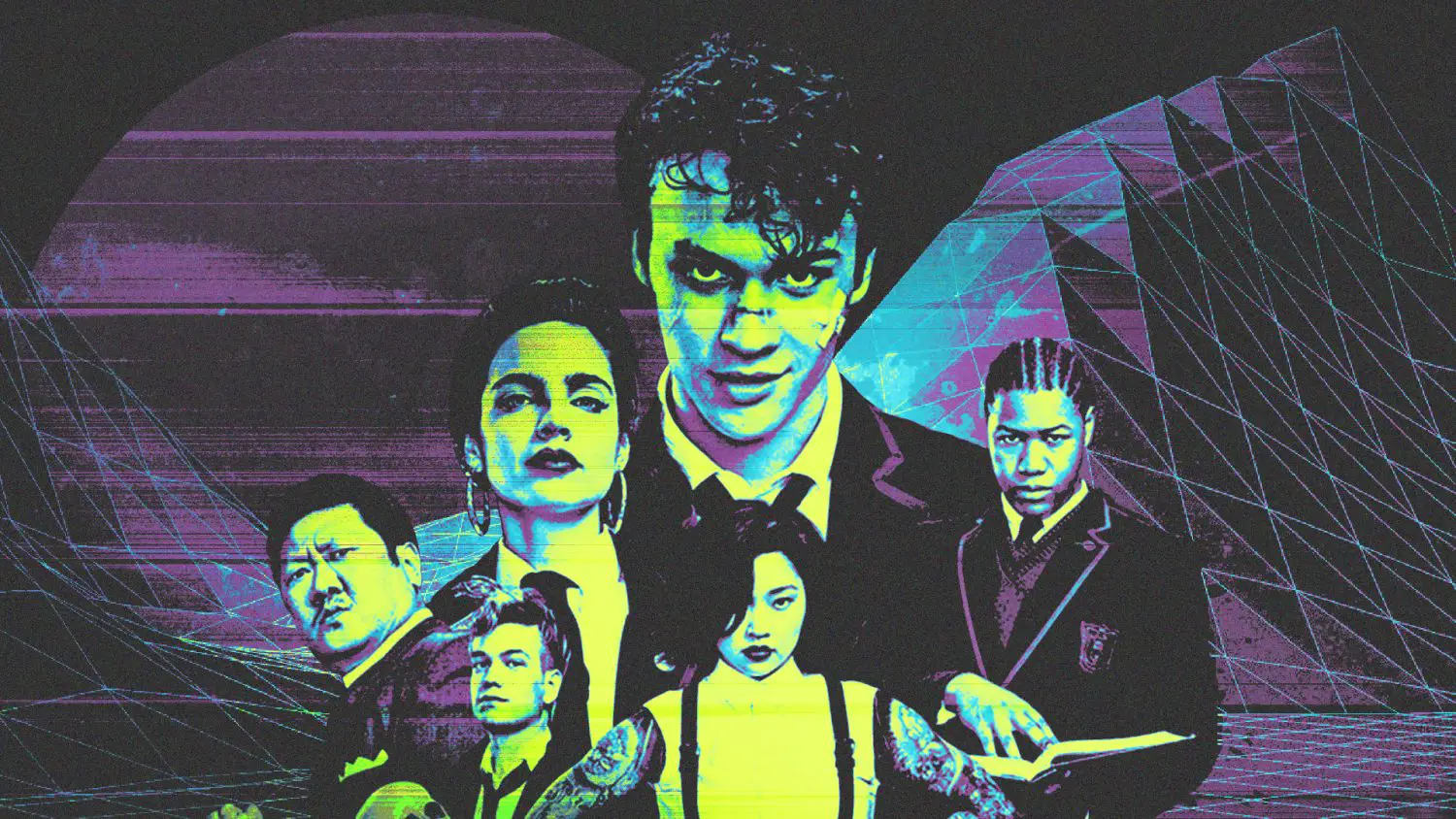For all intents and purposes, Deadly Class — SYFY’s new adaptation of Rick Remender’s comic book series of the same name — can be easily summed up as Harry Potter… if Hogwarts taught all facets of murder instead of, you know, magic. But while it is very much a show about a collection of young outcasts enrolled in an underground school of assassins, with the shared anti-establishment view of the world, even if each faction of kids at the school hates the other (more on that later), underneath its sexy, stylized, hyper-violent exterior, exists what we’ve deduced to be a love letter to the underground music scene of the 1980s and beyond.
SYFY’s new adaptation of Rick Remender’s comic book series of the same name — can be easily summed up as Harry Potter… if Hogwarts taught all facets of murder instead…
“I have seen few and far between examples of the ’80s I grew up in brought to any medium,” Rick Remender, the creator of the Image Comics series, told SYFYWIRE. “One of the things that I wanted to do was just for me, was to do a Mad Men-style snapshot of the authentic ’80s underground in the same way that Mad Men did such a beautiful job of capturing the late ’50s and early ’60s in those first two seasons. And the culture is seeping into the stories, and they’re interweaving.”
Not only is this storytelling choice a smart one, on both an aesthetic and world-building level, but the tunes featured throughout Season 1 also give a deeper understanding of the main players in this dreary Cold War-era tale.
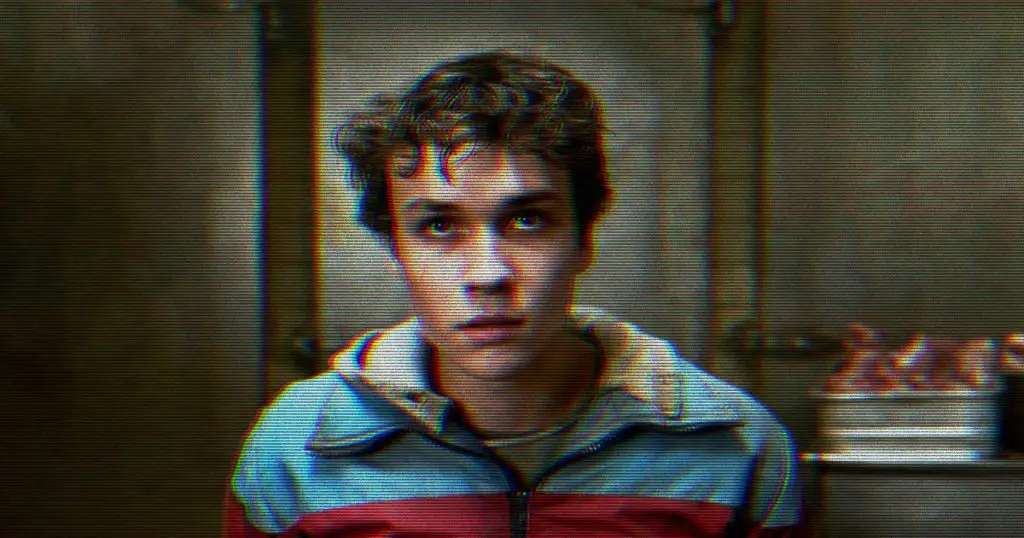
Deadly Class follows a misguided youth by the name of Marcus (Benjamin Wadsworth) who, after living life dangerously on the streets, is courted by Lin (Benedict Wong), the Dean of Students at the sinisterly-named King’s Dominion. The outfit, as we see rather quickly, is split up into different groups of young people, all befitted with a killer set of skills, and all placed in the school because of where they come from and who their privileged parents may be. Referenced as “The Legacies,” it’s clear we’ve got that familiar lunchroom scenario explored many times before on the big and small screen. But this, dear friends, is no John Hughes movie.
…amid the Yakuza kids, the young Nazis, the next generation of Mexican Cartels and L.A. Gangsters, Marcus finds himself grouped with a collection of outcast losers…
Here, amid the Yakuza kids, the young Nazis, the next generation of Mexican Cartels and L.A. Gangsters, Marcus finds himself grouped with a collection of outcast losers who have yet to find exactly where they fit in within this elite society of assassins-in-training. Dubbed “The Rats,” due to their lack of legacy prowess within the confines of the school, Billy (Liam James), Lex (Jack Gillett), and Petra (Taylor Hickson) are consistently subjected to ridicule and torture. It’s an aspect that feels very much like The Breakfast Club if it was told through a bloody CW-style Riverdale lens.
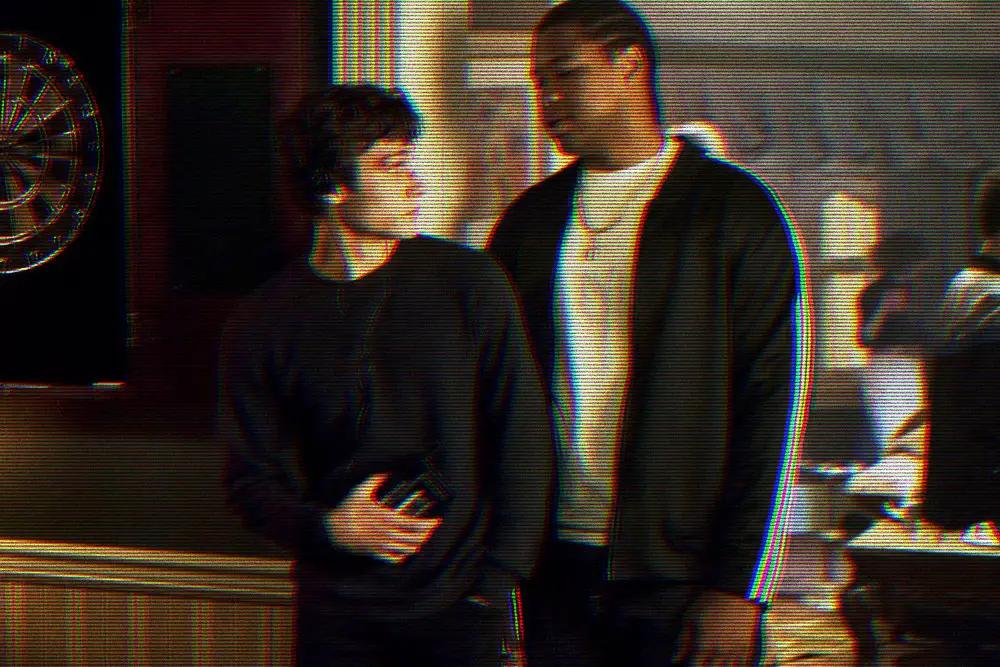
And while the grit, violence and language of Deadly Class make it clear that the show could easily beat up the Archie Comics-inspired series if they ever met in a dark alley, the two shows have a similar aesthetic when it comes to production quality… and music.
Before the time of streaming services and big ticket music festivals, where literally any and all genres of music are waiting to be poured through, there was a distinct practice of making mix tapes, pinning band patches to thrift-store jackets and band stickers to your prized possessions, while doing your best to solidify a floundering sense of identity within the hard-to-find communities that came with fringe music. Nowadays, any and all musical tastes can easily be quelled by a simple Google search, leaving the once scoffed at niche genres waiting to be discovered and enjoyed.
But with the rise of the Internet came the eventual demise of record store culture which is a shame on multiple fronts. The grassroots-level communities that developed around the underrepresented music scenes of the time — punk, goth, and hip-hop are the regular flavors featured throughout Deadly Class‘s epic soundtrack — gave the outcasts a place where they could find like-minded people, a place where they could feel included, a place where they could fit in.
The grassroots-level communities that developed around the underrepresented music scenes of the time — punk, goth, and hip-hop are the regular flavors featured throughout…
From the Descendants to Sisters of Mercy to Public Enemy, Deadly Class seamlessly brings together the big three underground music scenes of the ’80s in a way that doesn’t just help to tell the tale being told on-screen, but also, in so many words, rounds out each of our main characters in a way that is unseen in most modern day entertainment.
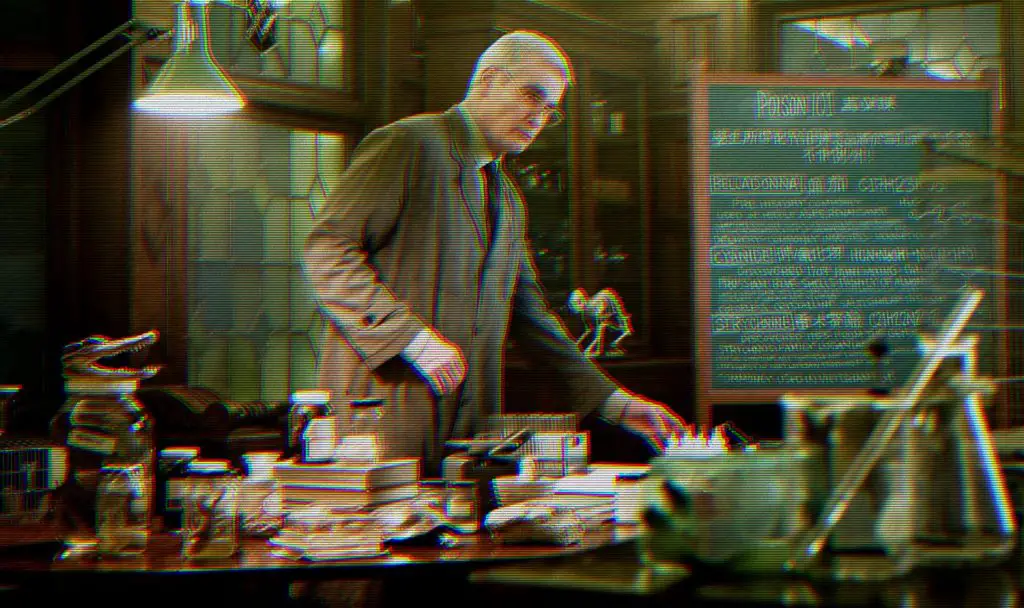
When Petra, in all her gothed out glory, throws some wicked side-eye at anyone who dares to cross her path, we know that Siousxie and the Banshees, Bauhaus and The Cure are just the tip of the musical iceberg that makes her tick. Lex and Billy are opposite sides of the same proverbial punk rock coin — the first of which represents the music’s pioneering Sex Pistols era, the old guard that paved the way for the second’s interests in American bands like Fugazi, The Damned, and Black Flag. Let’s not forget punk icon Henry Rollins’ appearance here as Jurgen Denke, the Poison Lab instructor. That casting wasn’t by accident.
And while Willie is most certainly a legacy, we find out early on that he’s a fraud, which puts him more in line with “The Rats” than anyone else. In 1987, hip-hop wasn’t the pop culture phenomenon we know it to be today. And hearing “Freaky Tales” by Too $hort blasting from Billy’s car as he tracks Marcus down for a killer assignment, Deadly Class nails home that, even though rap music came from different means, and speaks to a culture far-removed from the goth and punk music we referenced above, there’s a shared street-level anger and passion that each one of these genres shared.
The choice of that specific Too $hort track, too, is an intriguing one, since it was the Bay Area rapper’s first big hit — and one that was featured on a tape he started out selling from the trunk of his car.
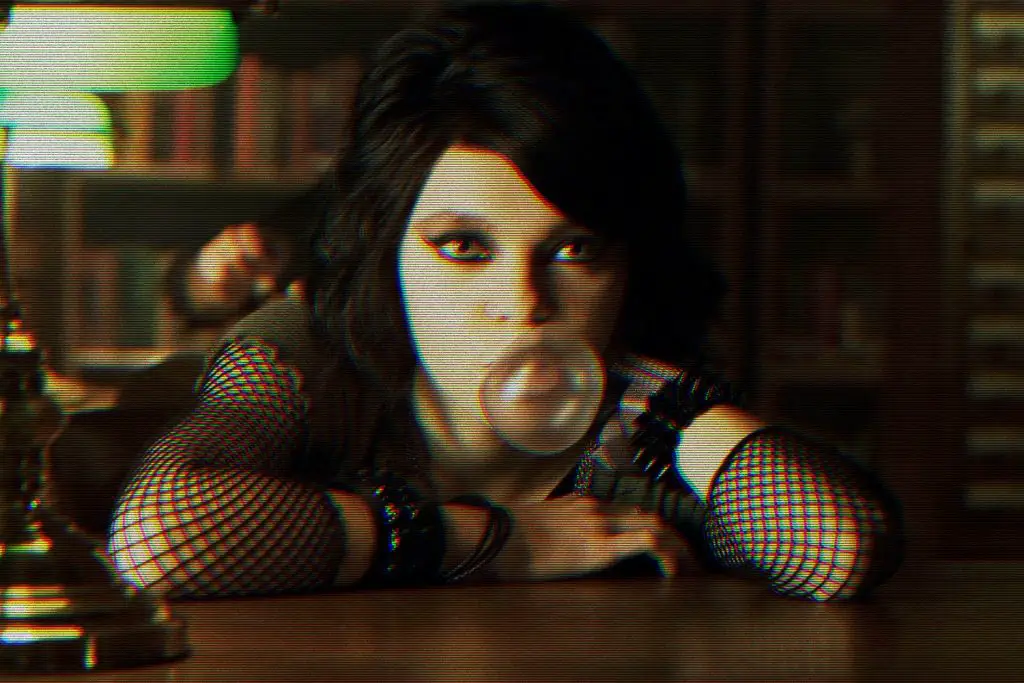
“You basically found your ideology and you found your tribe and you found your people so often through the voice of music and what the music was about and that it spoke to your soul,” Remender explained to SYFY. “When I was growing up, you would see somebody wearing a Dead Kennedys T-shirt in 1986. You knew you could go talk to that person and you would have something in common, and that you knew that your politics and your ideology and your philosophies on life would be similar-ish.”
With the introduction of MTV just a handful of years prior, new and exciting sounds were making their ways across the country, speaking to the underrepresented, disaffected Gen-X kids who didn’t know where they fit in.
Honestly, it makes perfect sense that Remender set this story in the late ’80s. It was still Ronald Reagan’s America. With the introduction of MTV just a handful of years prior, new and exciting sounds were making their ways across the country, speaking to the underrepresented, disaffected Gen-X kids who didn’t know where they fit in.
In turn, it was in these underground scenes where unlikely communities were formed. It’s where — like Marcus has with his eventual acclimation to his Kings Dominion surroundings — outcasts found their place, their inclusion, their solace and, for many, a reason to keep on living.
Deadly Class airs Wednesdays at 10 p.m. ET/PT on SYFY.

